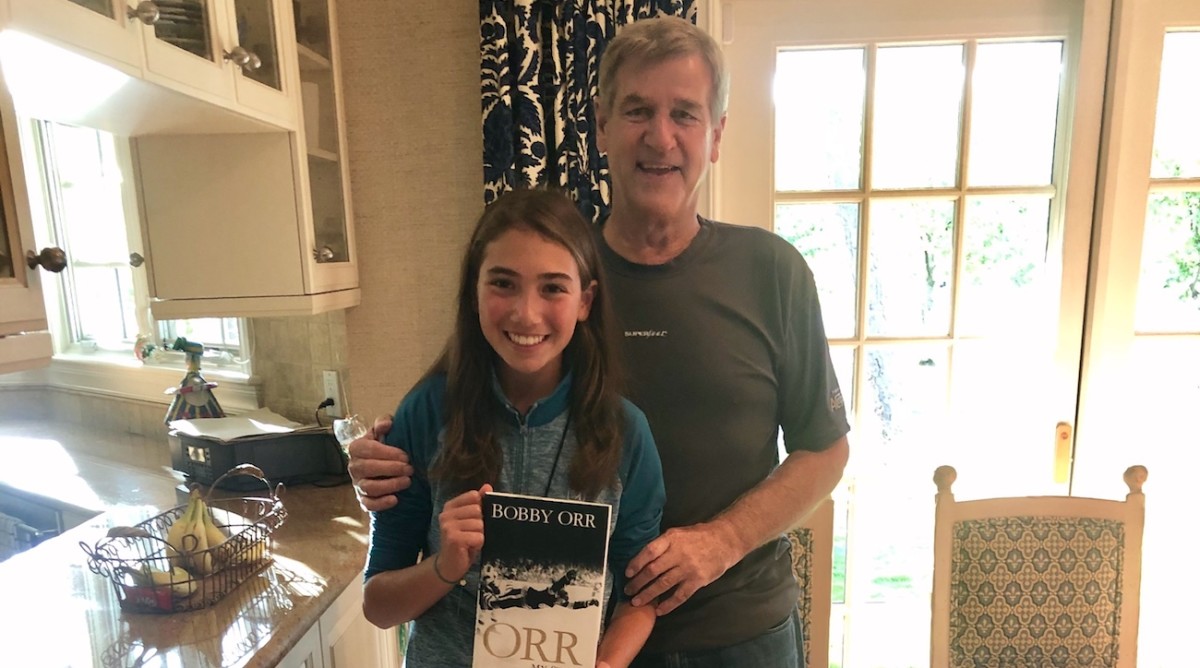Catching up with Hockey Hall of Famer Bobby Orr


The NHL season is underway, and there is no better time to interview legendary hockey player Bobby Orr. Most people know Orr for his elite hockey skills. Some hockey historians rate him as the greatest defensemen to ever play the game. Orr is famous for his Boston Bruins’ game-clinching goal to win the 1970 Stanley Cup. There is an iconic photo of Orr celebrating his winning goal as he was tripped by a St. Louis Blues defenseman and sent into the air.
Orr spends his time in Cape Cod, Massachusetts, and Florida. His life off the ice is even more impressive. Orr has helped out with numerous charities since he retired from hockey. He enjoys giving advice to young athletes and is known as one of the most genuine professional athletes. Orr graciously invited me into his Cape Cod home, where we sat down at his kitchen table to discuss his life. Now, let’s get on to the interview!
How have you gotten involved with your communities?
I try to help as many charities as I can, whether it’s giving my time at golf events, hockey games, or visiting sick people that might be hockey fans. I try to do a lot of things and not just one thing.
Do you feel professional athletes have a responsibility to give back?
As a professional athlete, I believe it is my responsibility to give back. I really believe it’s a responsibility [that] I have to bring attention to something, make someone smile who’s a hockey fan, or help raise money for a cause.
Do you have any role models?
I look at guys like Arnold Palmer. I was around Arnold a little bit and saw the way he treated people. It didn’t matter your age, he treated you with the utmost respect.
What advice would you give to young athletes?
People often ask me what the reason for my success is. I believe it’s my love and passion for the game. I couldn’t wait to get on the ice. I promise you that if you’re good enough and work hard enough, then you’ll get a chance to play.
How do you think youth sports has changed since you were a player?
I think there are a lot of parents and coaches, where the parents shouldn’t be in the rinks and the coaches shouldn’t be coaching the kids. A coach's first job is to help make better people by teaching them discipline, being good teammates, learning the game, but teaching them so many values they could use later in the future.
What do you like to do for fun?
Two of my passions are going out to play golf with the guys and going fishing. We are having another little grandchild in November, and I am very excited for that.
